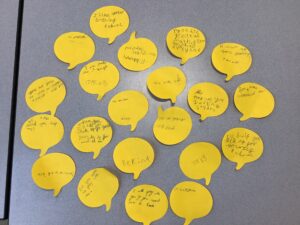This week’s message has a couple of reminders, but we start with a ‘Plan B’ update on Covid precautions…
Since the early days of the pandemic, the Department for Education has been sending regular emails to schools. Yesterday’s came with an introductory sentence: ‘Today’s email includes an urgent update for all education and childcare settings on implementing Plan B of the COVID-19 Response: Autumn and Winter Plan’. Here are some extracts:
school attendance remains mandatory and all the usual rules continue to apply
settings are strongly encouraged to ask parents, guardians and other visitors to take a lateral flow device (LFD) test before entering the setting
all staff and students should test over the holidays in line with national guidance. This means that they should test if they will be in a high-risk situation that day and before visiting people who are at higher risk of severe illness if they get COVID-19
We were also asked to ‘revisit…existing outbreak plans to ensure [we] are well prepared for any future changes’ – let’s hope we don’t get to the same situation as we were in last January.
Next, a couple of reminders…
Next Tuesday, learning updates will be sent home. These are short reports that we send home at the end of the Autumn and Spring terms; they complement the parent-teacher meetings which take place earlier in the same terms. We started doing these a few years ago following your feedback in our annual surveys.
Also coming up next week is a non-uniform day on your child’s party day. Our Uniform Policy contains the following:
Pupils should dress appropriately and respectfully for school, even on non-uniform days. Clothes are inappropriate if they, for example, glorify violence, feature bad language, are very short (eg crop tops), or relate to age-inappropriate topics (eg computer games)… Make-up (other than face paints as part of a specific costume) is not allowed. Flip-flops or high-heeled shoes are not allowed, even on non-uniform days, because they’re dangerous when running.
Have a happy and healthy weekend.
